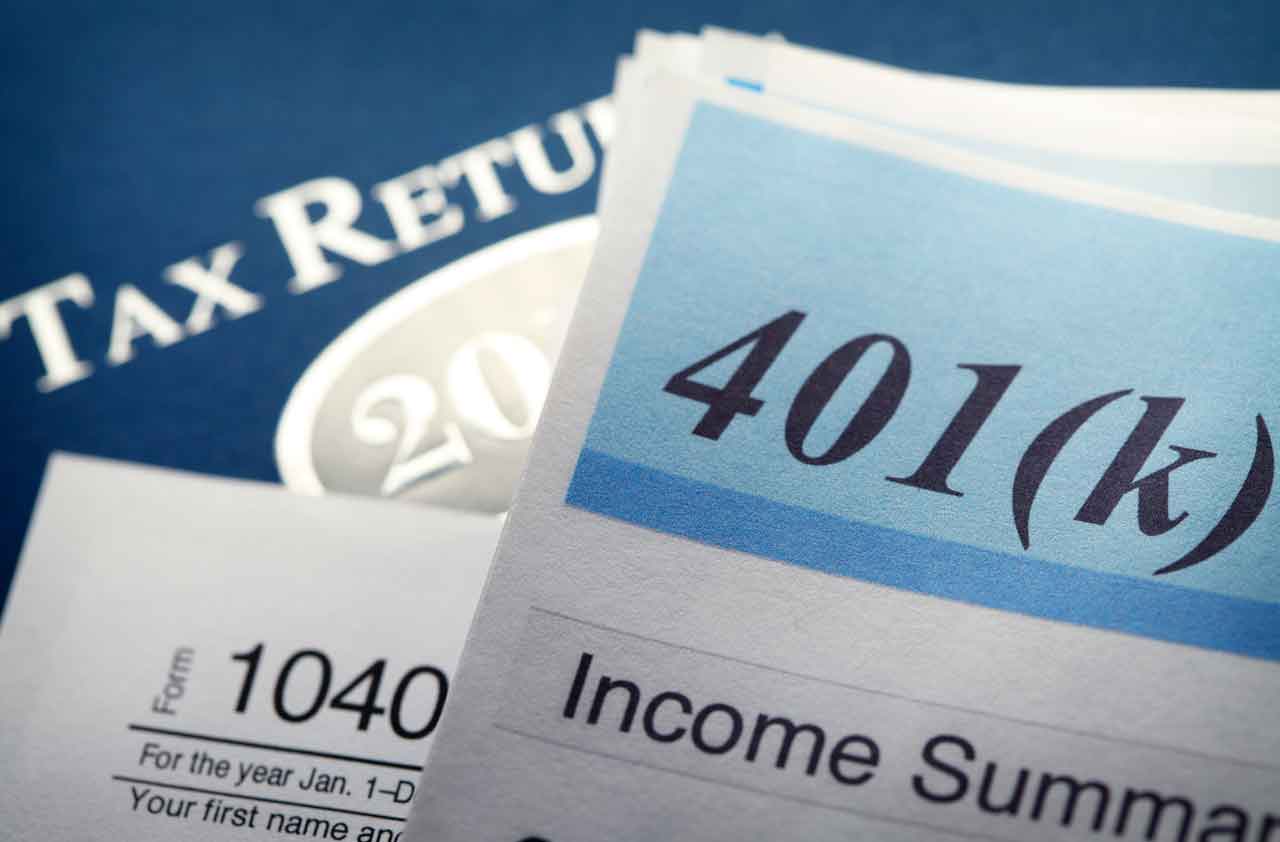Are Stable-Value Funds Safe?
For the first time ever, one of these funds lost money. But it doesn't mean widespread problems.

Profit and prosper with the best of Kiplinger's advice on investing, taxes, retirement, personal finance and much more. Delivered daily. Enter your email in the box and click Sign Me Up.
You are now subscribed
Your newsletter sign-up was successful
Want to add more newsletters?

Delivered daily
Kiplinger Today
Profit and prosper with the best of Kiplinger's advice on investing, taxes, retirement, personal finance and much more delivered daily. Smart money moves start here.

Sent five days a week
Kiplinger A Step Ahead
Get practical help to make better financial decisions in your everyday life, from spending to savings on top deals.

Delivered daily
Kiplinger Closing Bell
Get today's biggest financial and investing headlines delivered to your inbox every day the U.S. stock market is open.

Sent twice a week
Kiplinger Adviser Intel
Financial pros across the country share best practices and fresh tactics to preserve and grow your wealth.

Delivered weekly
Kiplinger Tax Tips
Trim your federal and state tax bills with practical tax-planning and tax-cutting strategies.

Sent twice a week
Kiplinger Retirement Tips
Your twice-a-week guide to planning and enjoying a financially secure and richly rewarding retirement

Sent bimonthly.
Kiplinger Adviser Angle
Insights for advisers, wealth managers and other financial professionals.

Sent twice a week
Kiplinger Investing Weekly
Your twice-a-week roundup of promising stocks, funds, companies and industries you should consider, ones you should avoid, and why.

Sent weekly for six weeks
Kiplinger Invest for Retirement
Your step-by-step six-part series on how to invest for retirement, from devising a successful strategy to exactly which investments to choose.
I read that a stable-value fund that Invesco manages for Lehman Brothers' 401(k) plan lost money. How safe are other stable-value funds?
It’s true that an Invesco fund is the first stable-value fund ever to lose money. But the fund's 1.7% decline in December 2008 is peculiar to the situation at the now-bankrupt Lehman, and it probably doesn't portend wider troubles in stable-value funds, which hold more than $400 billion, almost entirely in retirement accounts.
Stable-value funds generally invest in high-quality bonds with maturities of two or three years. That is a conservative strategy. In addition, the funds buy insurance "wrappers" that guarantee the principal. But two developments after Lehman's abrupt bankruptcy in September undermined the stable-value fund in the company's retirement plan.
From just $107.88 $24.99 for Kiplinger Personal Finance
Become a smarter, better informed investor. Subscribe from just $107.88 $24.99, plus get up to 4 Special Issues

Sign up for Kiplinger’s Free Newsletters
Profit and prosper with the best of expert advice on investing, taxes, retirement, personal finance and more - straight to your e-mail.
Profit and prosper with the best of expert advice - straight to your e-mail.
First, many former employees withdrew money from their 401(k)s, forcing the fund to sell bonds at a loss. In addition, contracts with three of the Lehman fund's seven insurers specified that their wrappers would become invalid in the event of bankruptcy.
Generally, stable-value funds negotiate new contracts in the event of a bankruptcy and maintain insurance coverage, but Lehman didn't have time to renegotiate the contracts. "It is difficult to imagine a worse case than what happened with Lehman," says David Babbel, professor emeritus at the University of Pennsylvania’s Wharton School and author of a study on stable-value performance.
The average stable-value fund returned about 4% in 2008. After the 1.7% hit in December, the Lehman fund gained 2.2% for all of 2008. An Invesco spokesman says that all of the fund's assets are now insured against loss and that the December write-down is likely to be a one-time event.
Profit and prosper with the best of Kiplinger's advice on investing, taxes, retirement, personal finance and much more. Delivered daily. Enter your email in the box and click Sign Me Up.

As the "Ask Kim" columnist for Kiplinger's Personal Finance, Lankford receives hundreds of personal finance questions from readers every month. She is the author of Rescue Your Financial Life (McGraw-Hill, 2003), The Insurance Maze: How You Can Save Money on Insurance -- and Still Get the Coverage You Need (Kaplan, 2006), Kiplinger's Ask Kim for Money Smart Solutions (Kaplan, 2007) and The Kiplinger/BBB Personal Finance Guide for Military Families. She is frequently featured as a financial expert on television and radio, including NBC's Today Show, CNN, CNBC and National Public Radio.
-
 Dow Leads in Mixed Session on Amgen Earnings: Stock Market Today
Dow Leads in Mixed Session on Amgen Earnings: Stock Market TodayThe rest of Wall Street struggled as Advanced Micro Devices earnings caused a chip-stock sell-off.
-
 How to Watch the 2026 Winter Olympics Without Overpaying
How to Watch the 2026 Winter Olympics Without OverpayingHere’s how to stream the 2026 Winter Olympics live, including low-cost viewing options, Peacock access and ways to catch your favorite athletes and events from anywhere.
-
 Here’s How to Stream the Super Bowl for Less
Here’s How to Stream the Super Bowl for LessWe'll show you the least expensive ways to stream football's biggest event.
-
 It’s Not Too Late to Boost Retirement Savings for 2018
It’s Not Too Late to Boost Retirement Savings for 2018retirement Some retirement accounts will accept contributions for 2018 up until the April tax deadline.
-
 Making the Most of a Health Savings Account Once You Turn Age 65
Making the Most of a Health Savings Account Once You Turn Age 65Making Your Money Last You’ll face a stiff penalty and taxes if you tap your health savings account for non-medical expenses before the age of 65. After that, the rules change.
-
 Using a 529 Plan for High School
Using a 529 Plan for High School529 Plans You’re now able to withdraw up to $10,000 tax-free from a 529 plan each year for K-12 tuition.
-
 Reporting Charitable IRA Distributions on Tax Returns Can Be Confusing
Reporting Charitable IRA Distributions on Tax Returns Can Be ConfusingIRAs Taxpayers need to be careful when reporting charitable gifts from their IRA on their tax returns, or they may end up overpaying Uncle Sam.
-
 Ex-Workers Get More Time to Repay 401(k) Loans
Ex-Workers Get More Time to Repay 401(k) Loans401(k)s If you leave your job while you have an outstanding 401(k) loan, Uncle Sam now gives you extra time to repay it -- thanks to the new tax law.
-
 The 11 Most Valuable Personal-Finance Lessons of 2018
The 11 Most Valuable Personal-Finance Lessons of 2018Financial Planning How to reduce taxes and medical bills, help the next generation save for retirement and protect against identity theft were some of the issues on readers’ minds in 2018.
-
 The Rules for Making a Tax-Free Donation from an IRA
The Rules for Making a Tax-Free Donation from an IRAIRAs Making tax-free gifts to charity from an IRA is gaining in popularity among older investors, thanks to changes under the new tax law. Here’s what you need to know to make a qualified charitable distribution.
-
 New Rules on Capital Gains
New Rules on Capital Gainsinvesting Rates didn’t change, but they’re pegged to your income instead of your tax bracket.